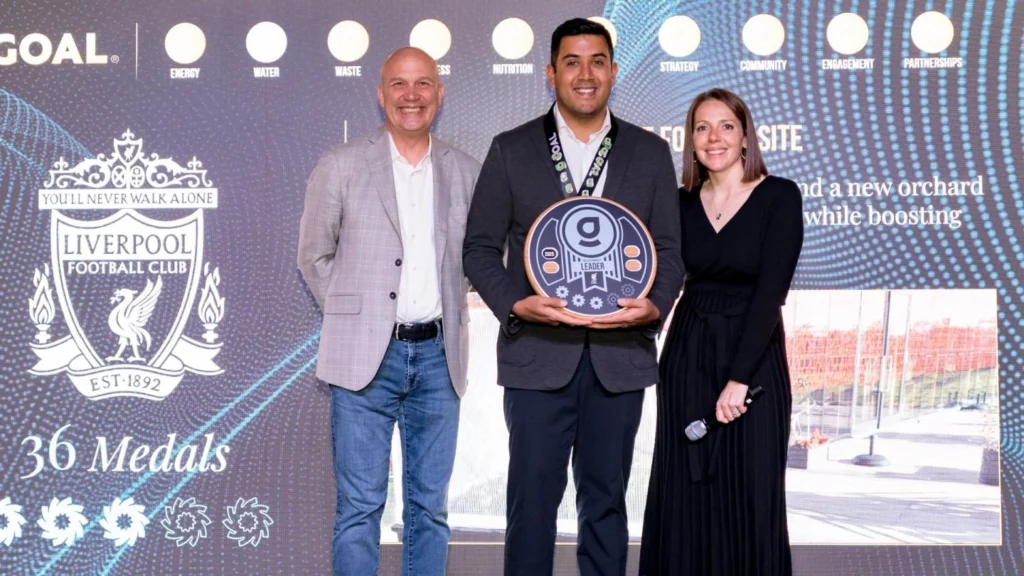At a high-profile summit in London, sports organizations were recognized for leading environmental and sustainability initiatives. The Sport Sustainability Awards highlighted clubs and federations making a tangible impact in reducing emissions, promoting recycling, and raising awareness on ecological issues.
Liverpool FC took home the Transformation award for its groundbreaking ‘Red Way’ program. The initiative boosted matchday recycling rates from 20% to 90%, while cutting carbon emissions by 15%. Club officials said the project reflects their commitment to creating a greener matchday experience and inspiring fans to take sustainable actions.
Real Betis won the Best Campaign award for its ‘Sin Azul No Hay Verde’ initiative, which aimed to educate fans about invasive algae affecting coastal ecosystems. The campaign combined social media outreach, local community events, and in-stadium promotions to encourage environmental responsibility among supporters. Organizers praised the club’s efforts to merge sport with ecological advocacy.
The International Ski and Snowboard Federation (FIS) earned the Inspired Innovation award for developing a CO2 Calculator. This tool allows snow sports organizers and athletes to track and manage their carbon emissions more effectively. By providing clear data on environmental impact, the calculator supports informed decision-making and encourages greener practices in winter sports.
The awards reflect a broader trend of sports organizations embracing sustainability. From football clubs to winter sports federations, teams are increasingly integrating eco-conscious strategies into operations and fan engagement. Experts say that sport has a unique power to influence public behavior, making these initiatives highly impactful.
Environmental experts attending the summit highlighted how recognition can motivate organizations to adopt greener practices. “Awards like these not only celebrate success but also set benchmarks for other clubs to follow,” said one speaker. “They show that sport can be both entertaining and environmentally responsible.”
Several other clubs and federations were also acknowledged for their innovative approaches. From renewable energy adoption in stadiums to waste reduction programs, the awards covered a wide spectrum of sustainability projects. This variety demonstrates how different sports can tailor eco-friendly initiatives to their specific operations and audiences.
Fans play a critical role in the success of these initiatives. Many clubs reported that increased recycling and awareness campaigns resonated with supporters, resulting in measurable environmental improvements. Engaging fans through education and incentives is becoming a key strategy in sports sustainability programs.
The summit included workshops, presentations, and panel discussions focused on reducing carbon footprints and promoting long-term ecological awareness in sports. Attendees emphasized that collaboration between clubs, federations, and local communities is essential for achieving meaningful results.
Overall, the Sport Sustainability Awards highlight how environmental responsibility is increasingly central to modern sports culture. Clubs and federations recognized at the event have shown that strategic, practical initiatives can lead to real-world ecological benefits. Their work demonstrates that sustainability and sport can thrive together, inspiring others to follow suit.



